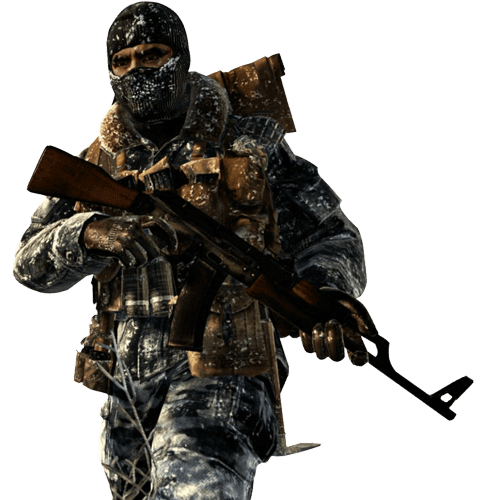Games By Matthew Humphries Jan. 13, 2014 1:59 pm
 When the PS3 and Xbox 360 hit the market game developers around the world had to cope with a huge increase in game quality due to the move to HD graphics. That resulted in much larger teams per game, and titles taking longer to develop simply due to the amount of additional work involved. Now the PS4 and Xbox One are on the market, and the workload is set to increase once again, only this time it is worse.
When the PS3 and Xbox 360 hit the market game developers around the world had to cope with a huge increase in game quality due to the move to HD graphics. That resulted in much larger teams per game, and titles taking longer to develop simply due to the amount of additional work involved. Now the PS4 and Xbox One are on the market, and the workload is set to increase once again, only this time it is worse.
That’s the view of Capcom, anyway. Masaru Ijuin, senior manager of technology management, technology development, and consumer games development at the company, answered a range of questions on the subject that you can read on the Capcom blog . He focuses on discussing how development has changed and why there’s 10x more work for next-gen titles, which I discuss below.
Capcom has relied on its MT Framework and rendering engine for current gen games development, with Dead Rising, Lost Planet, Dragon’s Dogma, and Resident Evil 6 being a few examples of the titles that use it. But MT is showing its age and development needs to get faster and “more parallel” to keep projects within a realistic timeframe, so Capcom faced a choice: upgrade MT for next-gen development or create a brand new engine.
They chose a new engine and called it Panta Rhei. It will be the engine of choice going forward for Capcom’s internal projects, although it won’t be used for any hardware generations earlier than PS4 and Xbox One. Mobile games will also continue to be created using the MT Framework.
As well as unlocking the full potential of the hardware features in the new consoles, Panta Rhei is meant to speed up games development from an implementation point of view. Getting initial game concepts into the engine and playable as quickly as possible seems to be the goal. But there is still a long way to go. Panta Rhei is heavily in development at the moment, suggesting that games using it are still some way off. However, as we have already seen, the fantasy RPG Deep Down uses it and is set to be released this year, although remains listed as “TBA 2014.”
From the footage we have seen, Panta Rhei certainly looks like it will deliver in terms of visuals, but it also highlights the amount of work required to produce the art assets required. With development of the engine ongoing, we could see some next-gen Capcom games delayed or at the very least the time between new releases extended for a while.
Capcom’s prediction of 10x the work required for a PS4/Xbox One game may be a bit extreme, but there’s certainly more work per project. And they seem to be taking the right approach to minimizing the time that work takes by improving the tools and making a new engine do as much of the hard work as possible and by default.

More...

That’s the view of Capcom, anyway. Masaru Ijuin, senior manager of technology management, technology development, and consumer games development at the company, answered a range of questions on the subject that you can read on the Capcom blog . He focuses on discussing how development has changed and why there’s 10x more work for next-gen titles, which I discuss below.
Capcom has relied on its MT Framework and rendering engine for current gen games development, with Dead Rising, Lost Planet, Dragon’s Dogma, and Resident Evil 6 being a few examples of the titles that use it. But MT is showing its age and development needs to get faster and “more parallel” to keep projects within a realistic timeframe, so Capcom faced a choice: upgrade MT for next-gen development or create a brand new engine.
They chose a new engine and called it Panta Rhei. It will be the engine of choice going forward for Capcom’s internal projects, although it won’t be used for any hardware generations earlier than PS4 and Xbox One. Mobile games will also continue to be created using the MT Framework.
As well as unlocking the full potential of the hardware features in the new consoles, Panta Rhei is meant to speed up games development from an implementation point of view. Getting initial game concepts into the engine and playable as quickly as possible seems to be the goal. But there is still a long way to go. Panta Rhei is heavily in development at the moment, suggesting that games using it are still some way off. However, as we have already seen, the fantasy RPG Deep Down uses it and is set to be released this year, although remains listed as “TBA 2014.”
From the footage we have seen, Panta Rhei certainly looks like it will deliver in terms of visuals, but it also highlights the amount of work required to produce the art assets required. With development of the engine ongoing, we could see some next-gen Capcom games delayed or at the very least the time between new releases extended for a while.
Capcom’s prediction of 10x the work required for a PS4/Xbox One game may be a bit extreme, but there’s certainly more work per project. And they seem to be taking the right approach to minimizing the time that work takes by improving the tools and making a new engine do as much of the hard work as possible and by default.
More...






